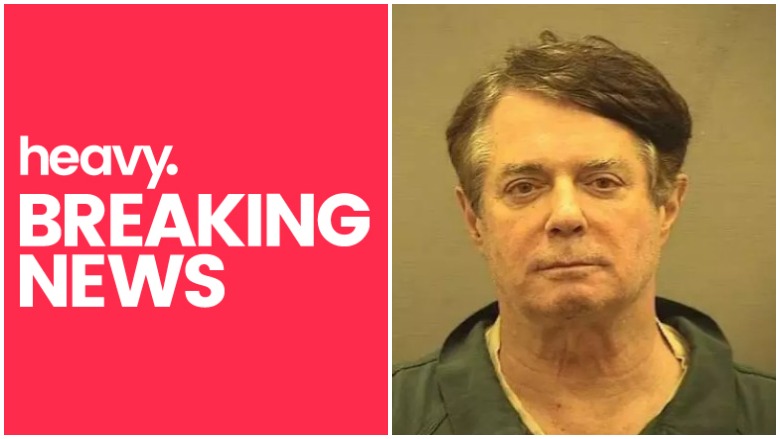
The jury has found former Trump campaign manager Paul Manafort guilty on eight counts in his federal money laundering and financial crimes trial in Virginia, according to CNN. He was found guilty on five tax fraud charges, one charge of hiding foreign bank accounts, and two counts of bank fraud, it was reported at 4:40 p.m.
Manafort face up to 80 years in prison.
The jury was able to reach a consensus on eight of the 18 counts and was unable to reach a consensus on the remaining 10. The judge declared a mistrial on the 10 counts that jurors were unable to make a decision on.
Manafort, 69, still has a pending case in Washington D.C. slated to begin next month with reported voluminous evidence related to charges of conspiracy to defraud the U.S., failing to register as a foreign agent, money laundering, witness tampering and making false statements.
As part of Special Counsel Robert Mueller’s investigation into Russia’s cyber attack on the US 2016 presidential election and possible Trump camp collusion, the Manafort financial crimes case, some observers say, was to squeeze Manafort to turn on Trump and give up evidence on possible Russian collusion with the Trump camp.
It was reported that in closing arguments, prosecutor Greg Andes said, “The star witness in this case is the documents.”
Bankers and bookkeepers related to Manafort’s finances testified for the prosecution.
After four days of deliberation, the jury, which was not sequestered, sent what some reported was likely its final note to the judge.
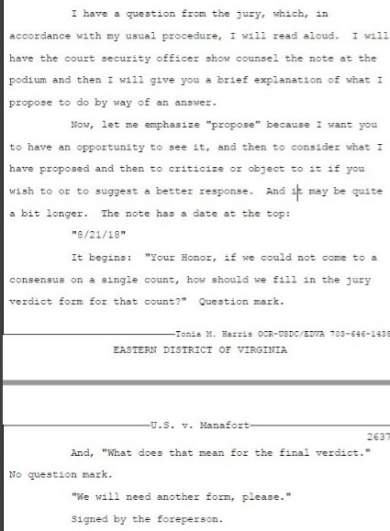
At 4:10 p.m., on the fourth day of deliberations, the jury delivered another note to the judge. Was this the verdict, reporters asked.
And the verdict is guilty on eight of the 18 charges. Manafort is guilty on five tax fraud charges, one charge of hiding foreign bank accounts, and two counts of bank fraud.
Here’s what you need to know:
1. Manafort Did Not Present a Defense at Trial
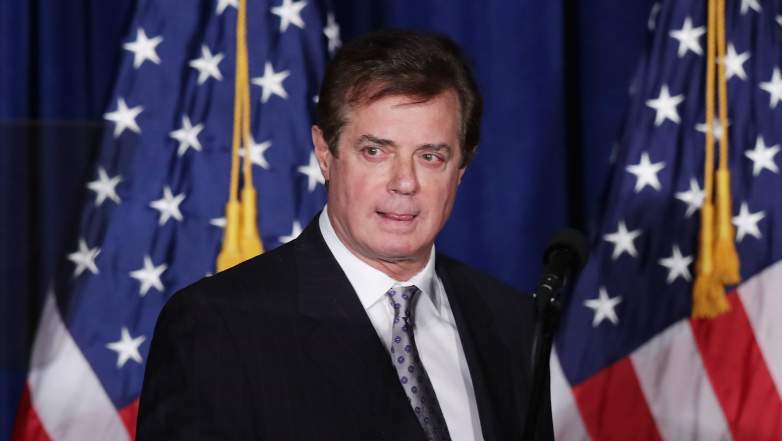
Paul Manafort was Trump campaign chief from March 2016 until August 2016.
The government said Manafort laundered $30 million, money he made working for government officials and political leaders in Ukraine, via a network of hidden offshore bank accounts back to the U.S. without paying taxes and subsequently obtained $20 million in illegal loans.
But Manafort didn’t present a defense at trial. His lawyers did not call any witnesses. US District Judge T.S. Ellis III asked Manafort if he understood his constitutional right to remain silent; he did. The judge then asked if he wanted to testify and Manafort said no. All that was left was closing arguments.
The case went to the jury Wednesday Aug. 15. It came back after four days of deliberations with its verdict.
2. Rick Gates Testified he & His Boss Manafort Were Guilty of Financial Crimes Against the U.S.
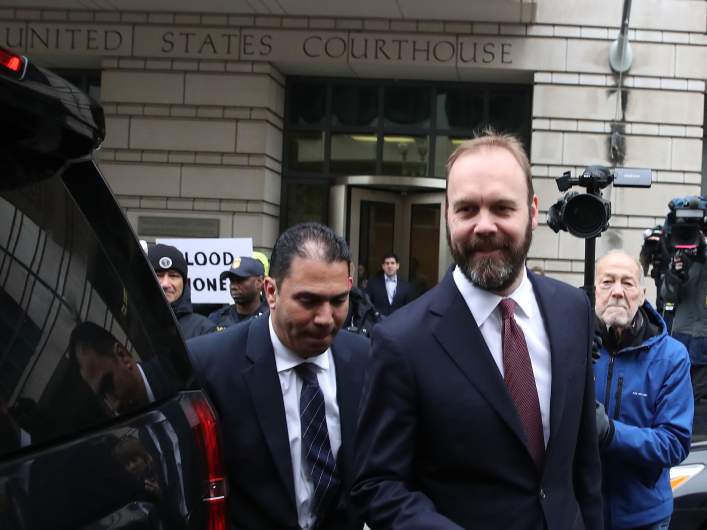
Rick Gates,pleaded guilty to two criminal charges in special counsel Robert Mueller’s investigation.
In his testimony, Gates admitted he and Manafort committed crimes together. His admissions in court came months after the release of details from Mueller that Gates and Manafort talked to Russian agents. Gates’ testimony in Manafort’s trial however focused on the money laundering he and Manafort were in on together.
Gates said he and Manafort had “15 foreign accounts they did not report to the federal government, and knew it was illegal.” Gates testified he lied “at the direction of Mr Manafort.” Gates told the jury at Manafort’s direction, he filed false tax returns by “lying to his boss’ accountants about under reporting income, creating false loans, and not disclosing Manafort’s ownership of the foreign accounts …” it was reported by CNN’s Shimon Prokupecz. Gates pleaded guilty to conspiracy against the U.S. in February and agreed to cooperate with Mueller rather than go to prison.
3. Judge T.S. Ellis III Was Seen by Some as Being Adverse to the Prosecution & Said the Bank & Tax Fraud Case Was a Way to Get Manafort to ‘Sing.’ Ellis Also Said He Was Threatened & Had US Marshals Guarding Him
The Princeton and Harvard-educated US Navy veteran born in Columbia was appointed to the bench in 1987 by Pres. Ronald Reagan.
Thomas Selby Ellis III, known as T.S., had been seen by some observers as hostile to the prosecution and dubious about its intent. As The Guardian reported, Ellis bristled and chastised the government stating it did not care about the financial crimes case, rather Mueller’s team was focused on “getting information Mr. Manafort can give you that would reflect on Mr Trump and lead to his prosecution or impeachment.” Ellis used the term “sing” when referring to Manafort possibly testifying against Trump.
Ellis also said in the final days of the trial that he did not believe the prosecution had proved its case but deferred to the jury. As reported by Buzzfeed’s Zoe Tillman, Manafort’s lawyers charged the government “failed to show Manafort acted willfully when it came to the rest of the bank fraud, tax, and failure to report foreign bank account charges.” Ellis concurred: “In the end, I think the defendant makes a significant argument about materiality. But in the end, I think materiality is an issue for the jury.”
But before the jury began its deliberations, Ellis told it to ignore some of his comments.
“It is not my function to determine the facts. It is yours,” Prokupecz reported. Ellis is reported to have told jurors to “draw no inference” when the occasions when he reprimanded attorneys during the trial.
A day later, Ellis said he’d been threatened during the trial, which in and of itself was not terribly uncommon in such as large case, but added he had 24-hour protection by U.S. Marshals.
4. Manafort, Described by Trump in 2016 as a ‘Great Asset,’ Served as Campaign Chief for Five Months Before Quitting When His Dealings With Russia & Ukraine Came to Light
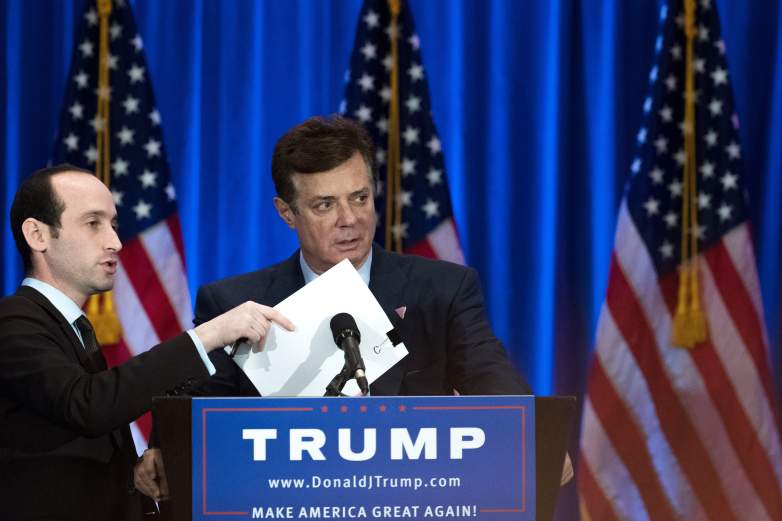
GettyThen-campaign chairman Paul Manafort checks the podium before Republican Presidential candidate Donald Trump speaks during an event at Trump SoHo Hotel in June of 2016.
The ABC News timeline shows of Manafort’s involvement with the Trump campaign began March 29, 2016 when he was named as campaign convention manager. In a statement released at the time, Manafort, who the campaign said was acting as a volunteer, was doing so because of his “considerable insight and expertise.” Trump was quoted in the statement as saying “Paul is a great asset and an important addition” to his campaign. Within days, per a later interview with Corey Lewandowski, Manafort was running the show: “Paul Manafort has been in operational control of the campaign since April 7. That’s a fact,” he told the AP as reported by ABC.
By July, Manafort was in clear command as evidenced by his running of the Republican National Convention in July of 2016. Days after, he’d deny the Trump camp had anything to do with Russia as those questions began to be raised and denied having anything to do with a tweaking of the GOP platform helpful to the Ukraine and Russia. By mid-August, when the New York Times reported that Manafort had been paid millions by the ousted Ukrainian president and following, another report that he’d bee working for the Ukrainians but did not register as a foreign agent, Manafort quit but not before denying everything.
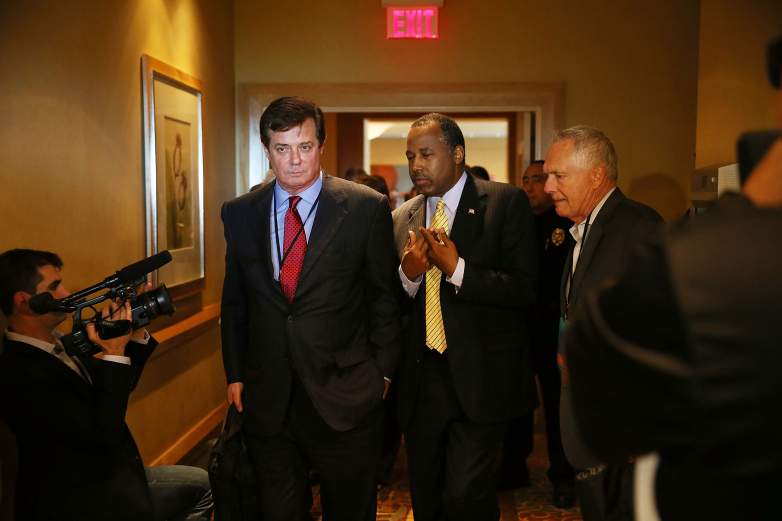
Then-Republican presidential candidate Donald Trump’s campaign strategist Paul Manafort speaks with Ben Carson before a Trump for President reception during the Republican National Committee Spring meeting in Florida.
Manafort officially worked for the Trump campaign from March 29 until Aug. 19, just shy of five months.
5. Manafort is a Longtime GOP Strategist & Has a History of Dubious Foreign Clients. He Also Advised Russian Oligarchs & Pro-Russia Ukrainian Politicians
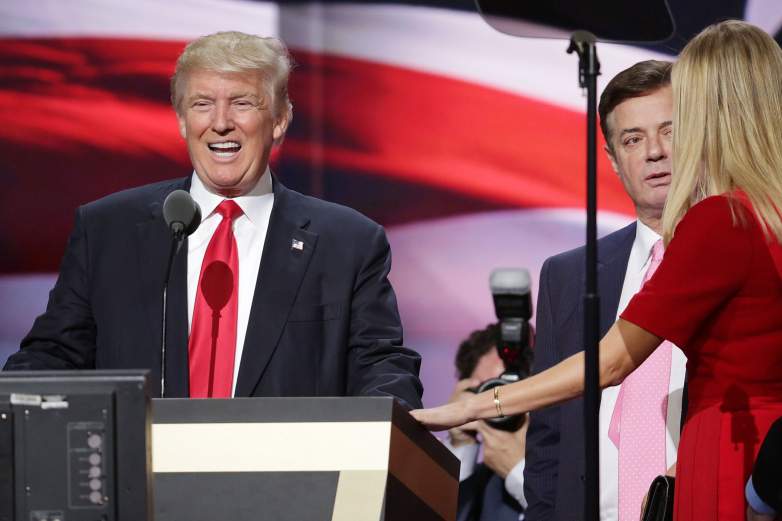
Then-Republican presidential candidate Donald Trump , Ivanka Trump and campaign manager Paul Manafort on the fourth day of the Republican National Convention on July 21, 2016.
Manafort was a Ronald Reagan presidential campaign coordinator in 1978. He also worked the Republican conventions for Gerald Ford, George H.W. Bush and Bob Dole.
Manafort made some $60 million “working in Ukraine for pro-Russia President Victor Yanukovch, the Party of Regions, and the
Opposition Bloc,” the government said, and did not pay taxes on the majority of that income.
So the Ukranine and Russia work aside, Manafort was described as “mercenary” by a former colleague as he and his partners in his D.C.-based lobbying firm, including Roger Stone, represented “international clients accused of killings, rapes and other atrocities,” The Guardian reported in May of 2016 as Manafort was calling the shots for the Trump campaign.
It was reported that Manafort had no problem working for “murderous dictator” in Somalia, Washington lobbyist Riva Levinson wrote in a memoir written about by The Guardian. ‘Choosing the Hero: My Improbable Journey and the Rise of Africa’s First Woman President.’
In the spring of 2016, The Guardian report, “Manafort has been hired as chief strategist to mastermind an improbable victory for Trump in November’s presidential election. He has been a key player in placating anxious Republicans on Capitol Hill.”
In either a prescient or pompous prediction, Manafort, described as Trump’s “top adviser” told the Huffington Post, Trump was going to win, “…unless we – meaning people like me – screw it up. This is not a hard race.”

